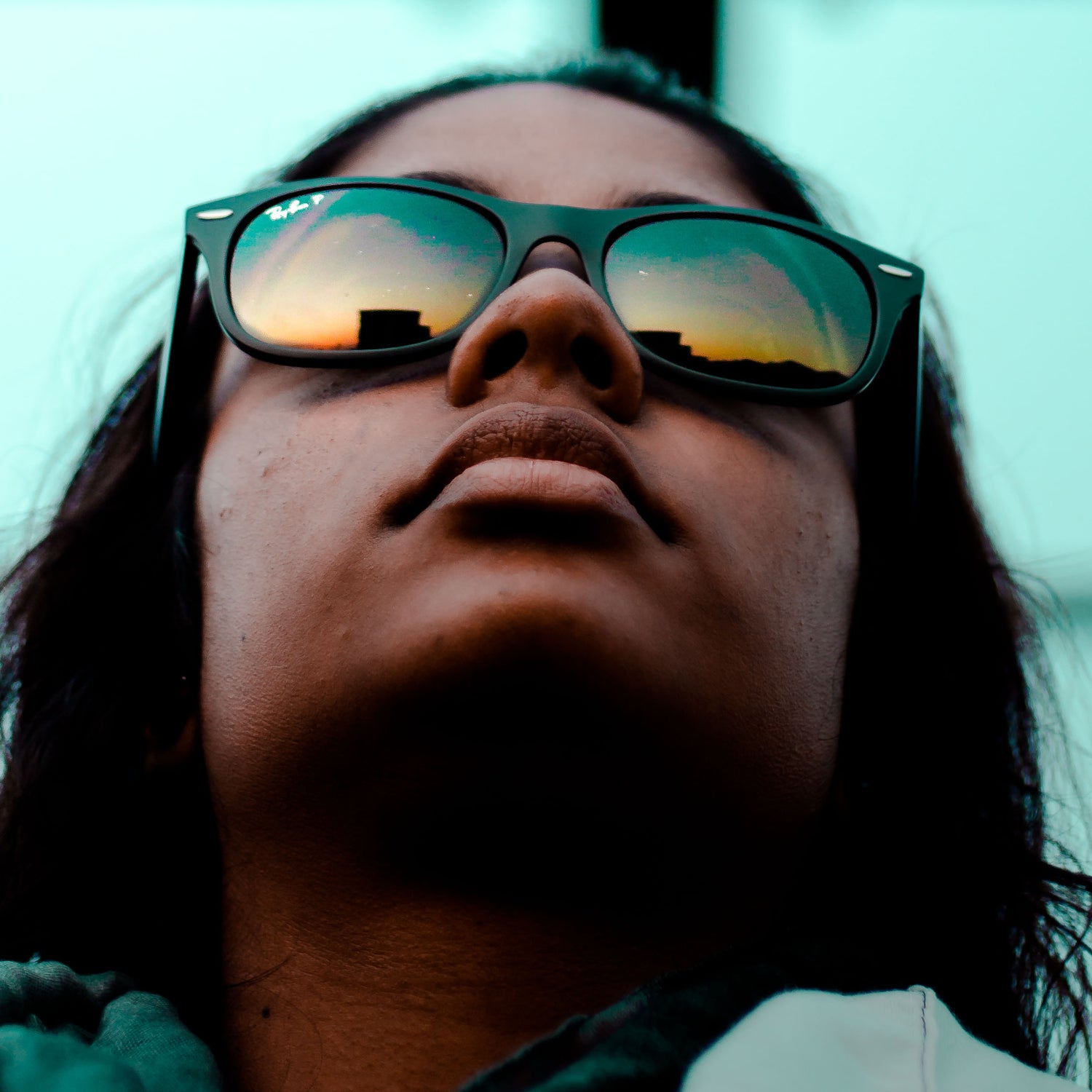Just about everyone I know is talking about the August 21 eclipse. I’ve also started exhibiting symptoms of ecliptomania, a term coined (I believe) in 1991, when an eclipse in Hawaii to the island. Like so many interstellar preppers, I’ve armed myself with cheap paper shades and newfound , from “annularity” to “umbra.” As the otherworldly overlap approaches, I’m making anxious internet searches and phone calls to friends, perusing Google Maps for two-lane back roads that my wife and friends and I might take to get ourselves into the eclipse totality area from the 99.5 percent occluded area near our home in Newberg, Oregon, exactly five miles from the edge of the approaching shadow of the moon.
There’s just one other detail that will make our once-in-a-lifetime experience complete: music. The hippest ancient philosophers Pythagoras, Plato, and Aristotle advanced the idea of musica universalis—the music of the spheres—that the movements of the sun, moon, and planets thrum with interplanetary harmonies that we can’t hear but shape our reality. Hence, it feels necessary to consider the ten most fitting musical numbers for the core of the eclipse, which, like the greatest pop songs, is a few minutes long. Coincidence?
“Cosmogony,” Bjork
Bjork’s music (and live shows) took a trippy, outer-spacey vibe with 2011’s Biophilia album, as evidenced by gorgeous tracks like “Cosmogony.” It’s a dreamy, woozy, gut-stirring lullaby, by turns searching, calming, and full of pathos: And they say back then our universe / Was an empty sea, until a silver fox / And her cunning mate began to sing / A song that became the world we know.
“Don’t Bother They’re Here,” Stars of the Lid
Stars of the Lid, a drone duo from Austin, Texas, weaves aural tapestries ringing with mesmerizing harmonies that are simultaneously tender and taut. Their entire 2007 double album, And Their Refinement of the Decline, would be a fitting soundtrack, but start with this track and “A Meaningful Moment Through a Meaning(less) Process.”
“Dreamlove,” The Bright Light Social Hour
The Austin-based psychedelic rockers released their second full-length album, Space is Still the Place, in 2015 after years of touring the United States and cranking tunes in their van. Inspired in name by Afro-futurism pioneer Sun Ra’s 1974 film, Space Is the Place, the whole record’s blistering, tranquil, and futuristic harmonies rumble with a cavalcade of meaty riffs on Hammond organ and electric guitar. Spacing out like a desert mirage one second, pulsating like a house music DJ the next, “Dreamlove” is interspersed with dreamy synths and layered, eerie vocals that will have you bobbing your head as you watch the sky.
“The Planets,” Opus 32, Gustav Horst
Written around 1916, this seven-movement suite for orchestra is a truly beautiful trip, especially the second movement, also known as “Venus, Bringer of Peace,” a shimmering skyscape of harps, flutes, oboes, glockenspiel, and solos on violin. With its mournful ascending French horn intro, one can’t help but hear the influence on American composer John Williams—specifically the first few bars of “Ben’s Death and TIE Fighter Attack,” and “Leia’s Theme” from Episode IV: A New Hope.
“Also Sprach Zarathustra,” Richard Strauss
A classic in many forms. Whether it’s a recording of Strauss’ eery, 30-minute tone poem written in 1896 (the version known from Stanley Kubrick’s 1968 film, 2001: A Space Oddyssey), Deodata’s funky interpretation featured in the iconic Peter Sellars movie Being There, or one of jam band Phish’s improvisatory takes (like recorded in 2010), the composition is an ideal soundtrack for celestial travels.
“Moonbuilding 2703 AD,” The Orb
The ambient house music pioneers led by Dr. Alex Paterson are best known for the early ’90s track “Little Fluffy Clouds,” the first on their debut 1991 record, ���ϳԹ���s Beyond the Ultraworld. Some 25 years later, the Orb would release this spacey paean to lunar bodies, meandering yet crisp and skittering with staccato, upbeat rhythms.
“Peace Piece,” Bill Evans
From Evans’ 1959 landmark jazz record, Everybody Digs Bill Evans, “Peace Piece” is a pastoral soundscape of vivid, chirping notes overlaid on an ostinato, an oscillating two-tone background played on the bass keys with sedative tranquility, building the contrasting voices to a serene conclusion. Black Ray-Ban Wayfarers not included but recommended.
“Dark Star,” Grateful Dead
The music never stops. Fifty years since they formed, the band’s appeal lives and grows, as evidenced by Amazon’s recent, six-part Long Strange Trip documentary, Dead and Co.’s stadium shows, and more and more music remastered for fresh ears. Countless jams by the “band beyond description” would be apropos, but “Dark Star,” the band’s famously long, searching fugue, is a good place to start.
“Eclipse,” Pink Floyd
Could it be any other? Whether or not you believe in the urban legend that it’s a psychedelic soundtrack to The Wizard of Oz, Pink Floyd’s Dark Side of the Moon can be synced pretty perfectly as an eclipse soundtrack. The whole record’s lyrics, soaring guitars, sociopolitical dissection, and rousing choruses were spawned from the band’s haziest, most creative era. Turn it on 40 minutes before totality to hear “Eclipse,” Roger Waters’ grand, two-minute-three-second climax at the big moment. And all that is now / And all that is gone / And all that’s to come / And everything under the sun is in tune / But the sun is eclipsed by the moon.
“Here Comes the Sun,” The Beatles
Inevitably, when the sun reemerges from behind the shadowing moon, eclipse watchers report rapturous feelings of oneness with Mother Nature, the cosmos, and our fellow humans. Then the party really starts. What better time to pump up George Harrison’s ode to optimism, recorded for Abbey Road in 1969 at Eric Clapton’s house. Here comes the sun. It’s alright!


